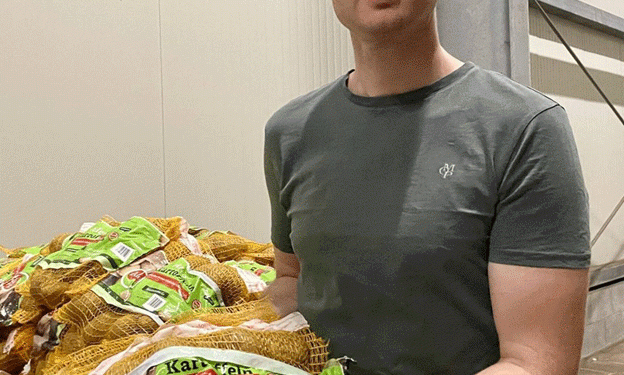In the heart of the Rotenburg district and its neighboring areas, potato farming is not just a tradition—it’s a thriving industry characterized by innovation and expertise. Among the leading figures in this field is Alexander Linnemann from Visselhövede. At just 28 years old, Linnemann has transformed his family farm into a model of modern potato cultivation. This article delves into his practices, the advancements in the industry, and the challenges and opportunities that come with it.
The Modern Potato Farming Approach
Alexander Linnemann embodies the new generation of potato farmers, combining deep-rooted knowledge with cutting-edge technology. His farm is a prime example of how traditional farming can adapt to modern demands and global markets.
1. Expertise and Innovation
Linnemann’s dedication to potato farming is evident in his daily operations. Known as a “potato professor,” he manages his farm with a level of precision and passion that sets him apart. His operations include:
- Year-Round Production: Linnemann’s farm processes potatoes 365 days a year. From June, he switches from handling “old” potatoes to harvesting the new crop, ensuring a continuous supply of fresh produce.
- Advanced Storage Facilities: His farm features a state-of-the-art storage facility where potatoes are kept at a controlled temperature of 6°C. This technology, managed by computer systems, helps maintain the quality of the potatoes and provides a competitive edge in the market.
2. Diverse Potato Varieties
Linnemann grows an impressive array of potato varieties, each tailored for specific uses:
- Table Potatoes: For direct consumption.
- French Fry Potatoes: For processing into fries.
- Chip Potatoes: Designed for making crisps.
- Starch Potatoes: Used in starch production.
- Seed Potatoes: For planting purposes.
His ability to cater to various segments of the market—from fresh consumption to processed products—demonstrates a sophisticated understanding of market needs and crop management.
3. Automation and Efficiency
Automation plays a crucial role on Linnemann’s farm. With around 12 permanent employees, the farm utilizes advanced machinery to streamline operations:
- Automated Processing: Many tasks, such as sorting and handling, are automated to ensure efficiency and consistency. Each of the 2,300 crates on the farm can hold up to two tons of potatoes, with precise labeling to prevent mix-ups and ensure quality control.
- Large-Scale Operations: The farm manages up to 10,000 tons of potatoes annually, highlighting its capacity and scale. Such operations require significant investment in technology and infrastructure, reflecting the capital-intensive nature of modern farming.
Challenges and Opportunities
1. Market Expansion
Linnemann exports his potatoes globally, navigating complex international trade regulations. The diverse applications of his potatoes—from food service to industrial use—demonstrate the adaptability of his products in different markets.
2. Crop Rotation and Soil Health
To maintain soil health and quality, Linnemann practices crop rotation. Fields are used for potato cultivation for up to four to five years before being rotated to different crops, preventing soil depletion and maintaining high yields.
3. Onion Cultivation
Recently, Linnemann has diversified into onion farming. This addition complements his potato business, as the technology and machinery used are largely similar. However, onion farming presents its own set of challenges, such as sensitivity to weather conditions and weed management.
Alexander Linnemann’s farm is a testament to the evolution of potato farming. By integrating advanced technology, specializing in various potato products, and maintaining high standards of quality, he exemplifies the modern farmer’s role in shaping the future of agriculture. His commitment to innovation and excellence not only drives his business but also sets a benchmark for others in the industry.







